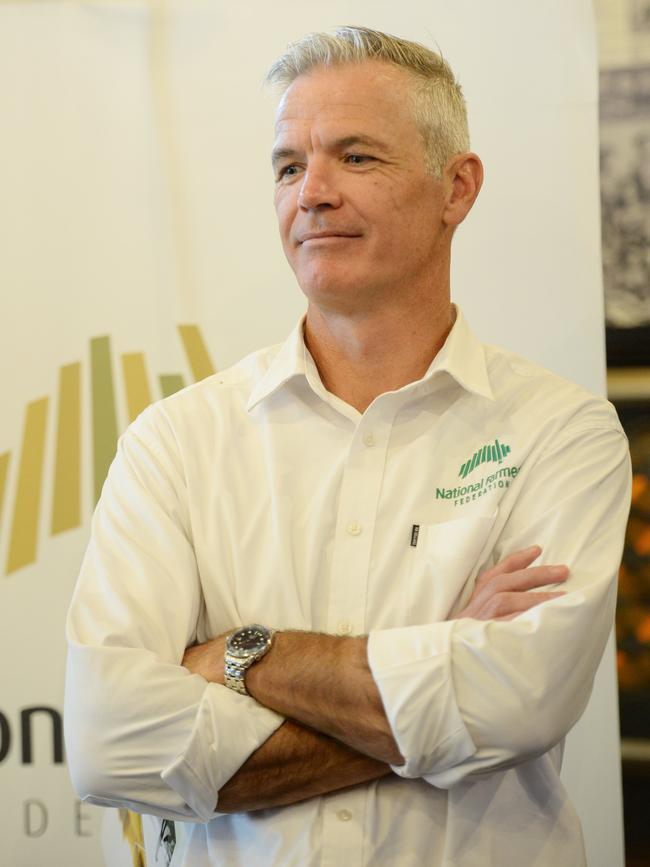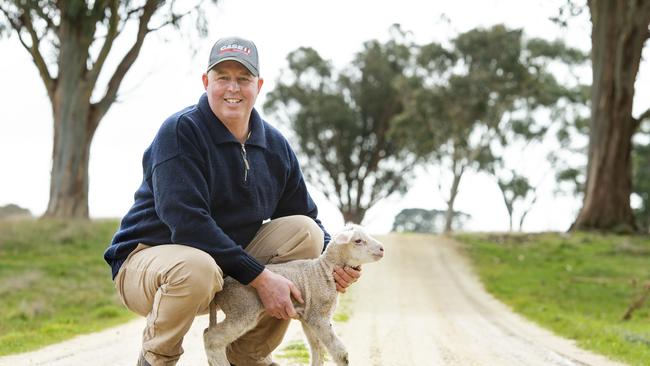BBFAW: Pressure on supermarkets to cut ties with animal rights benchmark
Big names in the livestock industry are heaping pressure on supermarket chains to cut ties with a “radical” global animal welfare benchmark.
Australia’s livestock industry is mounting pressure on the nation’s major supermarket chains to cut ties with a “radical” global animal welfare benchmark that is actively pushing companies to scale back the number of animals farmed for food.
The Business Benchmark for Farm Animal Welfare ranks some of the world’s largest agribusinesses and food retailers including Woolworths, Coles, JBS and Fonterra, based on their animal welfare practices.
As of next month, BBFAW will also judge companies based on their efforts to cut down their reliance on animal-based proteins. The UK-based organisation was founded by animal activist groups Compassion in World Farming and Four Paws, which want to end factory farming and halve livestock production by 2040.
The new criteria has prompted farming groups to condemn the benchmark and urge supermarket giants Woolworths and Coles – which had both been aspiring to increase their benchmark rankings – to dump any alignment with the organisation.
National Farmers’ Federation chief executive Tony Mahar said the idea that Australia needed to reduce demand for sustainable, ethically-grown animal products was “completely off the deep end”.

“This proposal lays bare the agenda of the groups behind this benchmark. It’s not about science-based improvements to animal welfare. It’s a radical anti-animal agriculture agenda that aims to shut down livestock industries over time,” he said.
“This should be a catalyst for any company using this benchmark to get out. These activist groups are no longer even pretending to be sensible. If I were Coles or Woolworths I’d run a mile at this point.”
Australia’s largest supermarket chain Woolworths had been working towards a Tier 1 “leadership” status with the BBFAW within the next three years, aligning its animal welfare policies to those of the benchmark, until last month when The Weekly Times first revealed the organisation’s underlying agenda.
Coles had said it too was “aspiring to improve its (BBFAW) score”.
Woolworths is now reviewing its use of the BBFAW, in light of the new assessment criteria, while Coles said it used “a range of measures” in animal welfare.
Victorian Farmers Federation livestock president Scott Young said farmers were concerned the retailers were looking to a European benchmarking system that didn’t recognise the nuances of Australian farming.
“The Australian farming system is a lot different to the European farming system, where it’s a lot more intensive. We have a lot more grass-fed and free-range animals,” Mr Young said.
Australian Meat Industry Council chief executive Patrick Hutchinson said it should not be incumbent on meat processors to diversify away from animal protein to comply with an international benchmarking system.

“If people want to consume alternative protein, that is up to them,” Mr Hutchinson said.
Wool Producers Australia general manager Adam Dawes said he was alarmed by the benchmark’s ambitions.
“How robust is a benchmark with a predetermined agenda? The alarming part is wanting to reduce our reliance on animal derived proteins. One of the things these groups fail to understand is that animal-derived foods can be produced on land that’s not arable. It’s not suitable for anything else,” he said.
Mr Dawes said Australian retailers should take a more balanced approach to benchmarking and global animal welfare systems.
A Woolworths spokeswoman said: “Following a range of changes to its assessment criteria, we are currently reviewing our use of the BBFAW to measure our performance against other retailers.”
“We’re not aligned to targets for reduced livestock production and we remain committed to meeting the ongoing demand for quality Australian meat now and well into the future,” she said.
A Coles spokeswoman said the retailer had never set a tier target with the BBFAW.
“We will continue to use a range of measures of performance in animal welfare rather than the singular use of the BBFAW,” she said.
An industry source said Australia’s major retailers were quietly retreating from their public association with UK benchmark.
“It’s (animal welfare) a real issue, we have to encourage the debate, but this is an example of where a standard is being used to go further that what’s originally being intended,” he said.
BBFAW co-founder and executive director Nicky Amos said the shift in focus was to adapt to the increased demand to cut down reliance on animal-sourced foods in human diets.
“Against this backdrop, food companies are increasingly acknowledging that, due to greater
resource inefficiencies such as land usage and water consumption in the production of
livestock products, there is a need to reduce meat consumption in order to move to a food
system that is considered sustainable,” Ms Amos said.
She told The Weekly Times BBFAW has been in contact with Coles and Woolworths in recent months.
A poll BBFAW conducted with about 50 businesses earlier this month found only 16 per cent agreed to the inclusion of new questions about reducing reliance on animal sourced- foods, with 68 per cent against the proposal.





